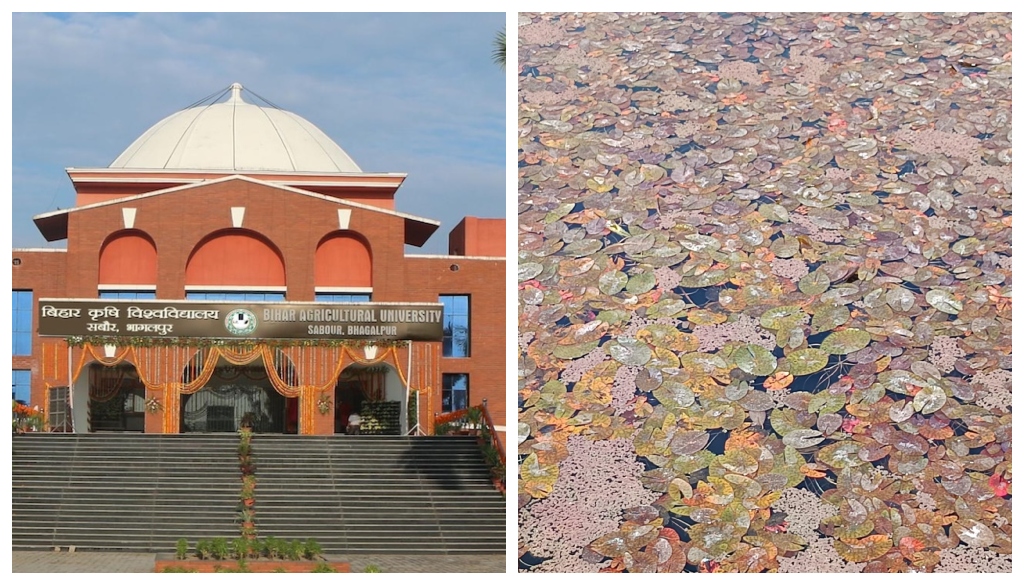Bihar Agricultural University Promotes Makhana Cultivation to Boost Self-Employment and Productivity in Waterlogged Areas

Sabour: Bihar Agricultural University (BAU), Sabour, has launched an initiative to promote self-employment and enhance the productivity of waterlogged areas in Bhagalpur district through large-scale Makhana cultivation. Under the leadership of Vice Chancellor Dr. Duniya Ram Singh, a detailed plan has been prepared, with successful experimental cultivation already conducted in 2024.
Last year, Makhana was cultivated on half an acre at the Krishi Vigyan Kendra (KVK) in Sabour under the technical guidance of Dr. Anil Kumar from Bhola Paswan Shastri Agricultural College, Purnia. Encouraged by the promising results, KVK Sabour’s Senior Scientist and Head, Dr. Rajesh Kumar, will demonstrate Makhana cultivation on five hectares of land belonging to selected progressive farmers in Bhagalpur this year. Farmers such as Vibhu Dubey (Kairiya Kahalgaon), Bhaskar Pandu (Bath Sultanganj), and Niranjan Kumar will plant Makhana saplings in March, using Sabour Makhana-1 seeds prepared in a dedicated nursery.
The university aims to expand Makhana cultivation in Bhagalpur’s waterlogged regions in the coming years. According to Dr. Singh, Makhana-based technology is highly suitable for promoting self-employment alongside agricultural productivity and profitability, not just in Bhagalpur but across Bihar and other states. He emphasized that BAU is well-equipped to lead this effort nationally.
Dr. Singh also highlighted the university’s world-class laboratory, which has recently identified a unique bioactive compound, N-(2-iodophenyl) sulfonamide, in Makhana for the first time. This compound is recognized for its significant medicinal properties, further enhancing the value of Makhana cultivation in the region.





